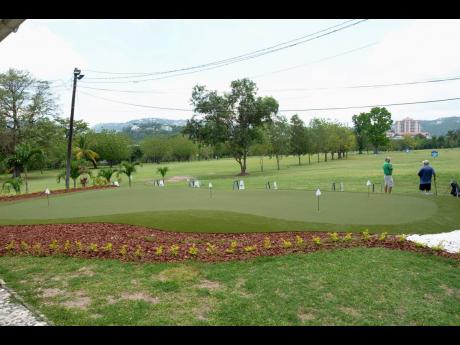Millions down the drain
Court ruling could lead to Constant Spring Golf Club not paying millions in outstanding property tax
Tax authorities will not be able to collect four years of property tax arrears owed by Constant Spring Golf Club (CSGC) amounting to millions of dollars, following a ruling by Jamaica’s second-highest court this week.
It marks the latest development in a two-year quest by Tax Administration Jamaica (TAJ) to collect $22 million in property tax arrears owed by the exclusive members-only club located on Constant Spring Road in St Andrew.
Property taxes are used mainly to finance major state functions such as garbage collection and street lighting.
CSGC’s arrears span a seven-year period ending in 2017, when the club failed to pay its entire property tax bill, along with penalties and interest assessed by TAJ, documents and government sources have revealed.
The Land Taxation Review Board, a state regulatory body, slashed the $22-million debt by just over 50 per cent in September 2019, a month before CSGC was hauled before the court by TAJ.
Then Parish Court judge Tracy Robinson ordered in March this year that CSGC pay the outstanding amount of $9.5 million over a 36-month period, failing which its 10 directors should serve a 15-day prison sentence.
But in a ruling handed down last Tuesday, a single judge of the Court of Appeal has barred TAJ from enforcing Robinson’s order until September next year.
The ruling was the result of an application by lawyers for CSGC.
The Court of Appeal is scheduled to hear legal arguments next September in the substantive challenge filed by the club against the order made by Robinson.
But senior government sources, citing the Tax Collection Act, say the stay of enforcement granted by the Court of Appeal effectively means that come January 1 next year, TAJ will be legally barred from collecting property tax arrears accumulated by CSGC for fiscal years 2010 to 2014.
“The legislation prohibits TAJ from collecting taxes beyond seven years,” the insider told The Sunday Gleaner, referring to Section 21 subsection three of the Tax Collection Act.
The arrears for the three remaining years – 2015 to 2017 – could also be wiped out if the appeal is postponed next September, as is often the case in the Jamaican court system, another source opined.
“They had no intention of paying,” one source charged.
Up to late yesterday, CSGC did not respond to questions submitted by The Sunday Gleaner.
The $12.9 million tax relief CSGC obtained from the Land Taxation Relief Board, administrators of the Land Taxation (Relief) Act, was granted in September 2019 following an appeal by the operators of the exclusive club, according to documents previously obtained by The Sunday Gleaner.
APPEAL TO FINANCE MINISTRY
Still, CSGC, apparently dissatisfied with the amount of tax break granted by the board, appealed to Finance Minister Dr Nigel Clarke “about the end of 2018” for a review of the board’s decision.
The finance minister is empowered, under Section 9 of the Land Taxation (Relief) Act, to consider appeals regarding decisions made by the board and to “make such order in relation to such appeal as the minister may think fit”.
CSGC explained, in an email to The Sunday Gleaner in April, that the appeal to Clarke was made because the 50 per cent waiver granted by the board was “unsustainable, having regard to the CSGC’s specific circumstances”.
The club’s general manager, Kirwin Tucker, said at the time that based on the CSGC’s finances, the 50 per cent rate of waiver imposes significant hardship and threatens the closure of its operations.
There was no word from the finance ministry on whether Clarke had made a decision regarding the appeal.
But a senior government source, who did not want to be identified, said the finance ministry has frowned at CSGC’s appeal, quietly expressing the view that the case did not warrant any further consideration beyond the board’s ruling.

